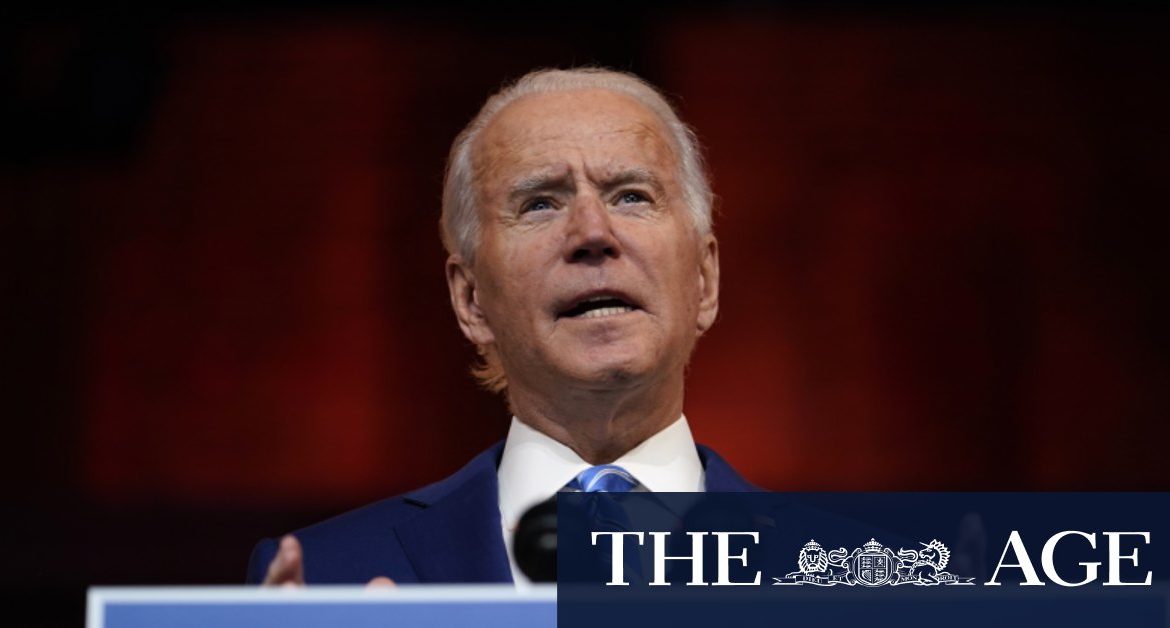The rejections came even as Biden advisers spent much of this week meeting with officials at the Office of the Director of National Intelligence and the CIA, agencies that are part of the US intelligence community but independent of the Defence Department.
Sue Gough, a Defence Department spokeswoman, said Friday that the Biden team “has not been denied any access”. In what officials in the Biden camp interpreted as a change in the Pentagon position, she said the requested meetings could take place as early as next week.
By then, Biden advisers will have waited more than a month since the election to have meaningful contact with intelligence agencies that have multibillion-dollar budgets, satellite networks that circle the planet and vast surveillance authorities.
The delays have added to the unprecedented tensions surrounding the transition, fueled by a President who refuses to concede that he lost the election and spent much of his tenure accusing the nation’s spy agencies of disloyalty to him.
A spokesman for the Biden transition team declined to comment, as did officials from the NSA and DIA.
The Pentagon has been in significant turmoil since the election. Acting secretary of defence Christopher Miller was installed last month after President Donald Trump fired Mark Esper, his Pentagon chief.
Current and former officials, who spoke on the condition of anonymity to discuss a sensitive matter, said the delays have impaired the Biden team’s ability to get up to speed on espionage operations against Russia, China, Iran and other US adversaries.
Loading
The inability to meet with the NSA was described as particularly worrisome. The agency is the largest US intelligence service and its eavesdropping capabilities have been a critical source of intelligence on threats as varied as weapons proliferation and foreign interference in elections.
Officials said that rejections relayed this week to the Biden team cited seemingly petty procedural barriers.
One person said the Pentagon had asked repeatedly for rosters of those who would take part in a visit, lists of topics and estimates of time to be allotted – information that in some cases had been provided at the outset.
“If they were in a cooperative mood, none of this would be happening,” said another person with knowledge of the interactions.
Pentagon officials in turn blamed Biden advisers. One defence official, who spoke on the condition of anonymity, citing the sensitivity of the subject, said that Biden transition officials had improperly contacted agencies directly to arrange visits and briefings and were told that they instead needed to submit requests to the Pentagon.
The result has been an awkward standoff in which former officials were spurned by agencies they formerly helped run. Among those ex-officials is Vincent Stewart, a retired three-star US Marine Corps general who previously served as Defence Intelligence Agency director and is a leading member of the Biden intelligence transition team.
Loading
Other spy agencies have been far more receptive. At the CIA, the Biden transition team has been granted extensive access to senior officials, computer equipment connected to the agency’s classified systems, and office space at Scattergood, a historic homestead on the CIA compound often used for entertaining VIPs.
Biden recently named Avril Haines, a former top White House official and deputy director of the CIA, as his nominee to become director of national intelligence. Biden has made no other announcements about his intelligence team, but former deputy CIA director David Cohen is seen as a leading candidate to become director of that agency.
The Washington Post
Most Viewed in World
Loading







